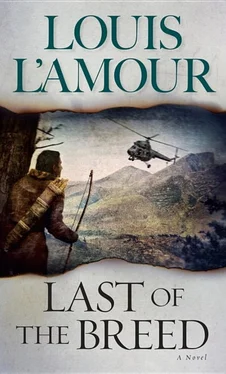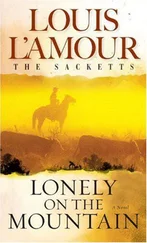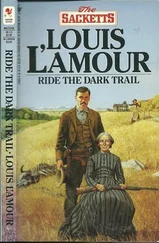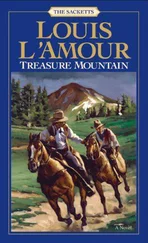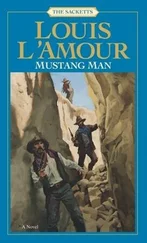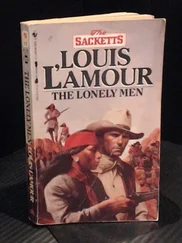Louis L'Amour - Last of the Breed
Здесь есть возможность читать онлайн «Louis L'Amour - Last of the Breed» весь текст электронной книги совершенно бесплатно (целиком полную версию без сокращений). В некоторых случаях можно слушать аудио, скачать через торрент в формате fb2 и присутствует краткое содержание. Город: New York, Год выпуска: 2010, ISBN: 2010, Издательство: Random House Publishing Group, Жанр: Триллер, Историческая проза, Приключения про индейцев, на английском языке. Описание произведения, (предисловие) а так же отзывы посетителей доступны на портале библиотеки ЛибКат.
- Название:Last of the Breed
- Автор:
- Издательство:Random House Publishing Group
- Жанр:
- Год:2010
- Город:New York
- ISBN:978-0-553-89935-1
- Рейтинг книги:3 / 5. Голосов: 1
-
Избранное:Добавить в избранное
- Отзывы:
-
Ваша оценка:
- 60
- 1
- 2
- 3
- 4
- 5
Last of the Breed: краткое содержание, описание и аннотация
Предлагаем к чтению аннотацию, описание, краткое содержание или предисловие (зависит от того, что написал сам автор книги «Last of the Breed»). Если вы не нашли необходимую информацию о книге — напишите в комментариях, мы постараемся отыскать её.
Last of the Breed — читать онлайн бесплатно полную книгу (весь текст) целиком
Ниже представлен текст книги, разбитый по страницам. Система сохранения места последней прочитанной страницы, позволяет с удобством читать онлайн бесплатно книгу «Last of the Breed», без необходимости каждый раз заново искать на чём Вы остановились. Поставьте закладку, и сможете в любой момент перейти на страницу, на которой закончили чтение.
Интервал:
Закладка:
His improvised snares yielded nothing in the time he could allow, so he retrieved his shoelaces and went on along the mountain. From time to time he found partridge berries, picking a few as he went along. They did little to appease his hunger but were pleasant to taste and gave him the illusion of eating something worthwhile.
From an aspen he cut a strip of bark, scraping off the soft tissues between the bark and the wood. He ate the moist, pulpy flesh, as he had often done as a boy, and continued on.
He had no illusions. Zamatev would never give up the search, and he had behind him all the power of the Soviet Union, and all they could muster in men, planes, cars, and helicopters, all linked by radio. The Armed Services would be alerted and civilian agencies mustered, and his description would be broadcast. And winter with its terrible cold would be coming.
His one advantage was that they did not know where he was and hence could not concentrate their search. Once they did know, his chances would be cut in half at the very least.
The air was clear and cool. The sun was bright. Siberia had very little rain and less snow, and in this area at least, clouds were rare. Yet in a mountain range somewhere before him the coldest temperatures outside Antarctica had been recorded.
So far he had traveled slowly, hiding out when he sensed any movement, avoiding all signs left by men. He slept in snatches when the sun was warm, but the weather grew colder. He had to stop soon, as he must trap some animals for their skins. He would need clothing.
The valley of the Kalar narrowed into a canyon, and Joe Mack, staggering and ready to drop from exhaustion, leaned against the trunk of a dead tree and stared down at the river, several miles away. He could occasionally catch a gleam of water, no more.
He should not be tired, but lack of food was sapping even his great strength. He had traveled, he estimated, at least one hundred and fifty miles since breaking out. Most of that time he had been cold and hungry, barely subsisting on the food he could find. He had to stop. He had to recoup his strength. He had to prepare for the winter.
In the past several days he had survived on berries, scrapings from aspen bark, several ptarmigan he had killed, a number of squirrels, a marmot, and fish he had speared.
For a long time he stared wearily down toward the river; then slowly he turned his head to scan his immediate surroundings.
The face of the cliff behind him was obscured by a thick, almost impenetrable thicket of stone pine. Below him, stands of birch and aspen covered the slope, and a trickle of water ran down through the rocks toward the river, far below. He was turning his head away when something caught his attention. Under the stone pine the shadows seemed unusually black. He looked again, then went closer and dropped to his knees. Behind the thicket of stone pine there appeared to be a cave.
Crawling under the lowest branches he found himself in an overhang perhaps ten feet deep and as many wide. Here, for a little while, he would rest.
Outside, several times in the past few hours, he had seen the droppings of either mountain sheep or deer. They looked much the same.
If he could kill a mountain sheep he would have both meat and the hide.
The spear he had fashioned was adequate, but no more. What he needed was a bow and some arrows. Even if he had a rifle it would do him more harm than good to fire it, as the sound would be sure to attract attention. He also could make a sling. Many Indians had used the sling, and he had been expert in its use since childhood.
His grandfather had been both a harsh and a kindly man. “Learn to live off the land,” he had said. “Your ancestors did it, and you can. Learn the roots, the leaves, the nuts, and the seeds. Now you do not have to live so, but who knows what the future may hold?”
The great men of his boyhood days had not been George Washington or Abraham Lincoln, not Jim Thorpe or Babe Ruth, but Red Cloud, Crazy Horse, Gall, and a dozen others. From his grandmother he heard the stories of Indian war parties, of raids against the Arikara, the Kiowa, the Crow, and the Shoshone. Throughout his boyhood he had been enchanted by tales of the great warriors of the Sioux nation, of scalps taken, of coups, of men who would die rather than yield.
Each summer when school was over he went into the woods with several companions, where they lived as Indians once had, where they hunted, trapped, and lived off the country as they had been taught.
He slept, shivering and cold, beside a small fire in his cave, and when dawn broke he knew he must remain here until he had killed animals to provide him with food and clothing. He must make a bow and arrows. In the meanwhile, he made a sling and gathered stones with which to arm it.
He teased his fire to life with bits of bark and then added larger sticks. Then, armed with spear and sling, he went out on the mountainside.
First he listened long and carefully for any sounds other than those of the taiga, as the forest was called in Siberia. He went to a vantage point and watched the river, but saw nothing. He sat very still, every sense alert. He needed meat and he needed clothing. He also needed sinews to make a bowstring. In the old days these had been made from sinews taken from a buffalo’s shoulder or just below it. Now he must make do. There were wild reindeer in the valleys and along the slopes. So far he had seen two, but had been without a weapon to kill them. The spear would do if he could get close enough, or even the sling if the distance were right and if he could throw with sufficient accuracy.
Slowly the minutes passed, and he waited, watching. A glutton passed, but he had no wish to attack so formidable and useless a creature. Yet the fur might be used, and on another occasion—
A huge bear lumbered along the mountain, keeping under cover of the aspen well below where he sat. Again he had no adequate weapon with which to face such a beast. Yet it was fat he needed, and the bear was rolling with it.
Joe Mack shivered in the chill morning air. It was now August, The Moon of the Ripe Plums, but most of the month had already gone, and the time of Yellow Leaves was approaching.
Shortly before the sun was high he killed a blue fox, skinned it, and roasted the meat over his fire. He stretched the skin and scraped it. Then he left it stretched in the cave and returned to watch the trail again.
The next day he went down to the river and speared three fish. Carrying them back, he came into a small hollow where the air was warmer, and there was even a slight change in the vegetation. Tiny microclimates like these occurred in the mountains from time to time, places that through some chance were warmer or colder than elsewhere. Hunting through the woods, he came upon several plants more typical of Manchuria or Japan than Siberia. Suddenly alerted, he searched carefully and found a half dozen ash trees. From the hidden side of one of them he cut a limb he believed might make a good bow, then worked his way by a devious route to his cave.
All the next day he worked on his bow, shaving it with edges of stone and trimming it with care. At times he tried bending it. He made two notches in the bottom, one in the top.
Yet he was worried. He was staying too long in one place, and he could not avoid leaving some sign of his presence.
On his fifth day he killed a mountain sheep, skinned it, dined well, and went to work curing the hide. At noon, tired of his work, he went out into the air and sat on his rock, watching the river.
He heard the sound before he realized its meaning. He listened, watching the river, and at last a motorcraft of some sort came within sight. Although he was too far off to make out its cargo, it seemed to be loaded with men. Then as the boat passed he caught the gleam of sunlight on rifle barrels.
Читать дальшеИнтервал:
Закладка:
Похожие книги на «Last of the Breed»
Представляем Вашему вниманию похожие книги на «Last of the Breed» списком для выбора. Мы отобрали схожую по названию и смыслу литературу в надежде предоставить читателям больше вариантов отыскать новые, интересные, ещё непрочитанные произведения.
Обсуждение, отзывы о книге «Last of the Breed» и просто собственные мнения читателей. Оставьте ваши комментарии, напишите, что Вы думаете о произведении, его смысле или главных героях. Укажите что конкретно понравилось, а что нет, и почему Вы так считаете.
